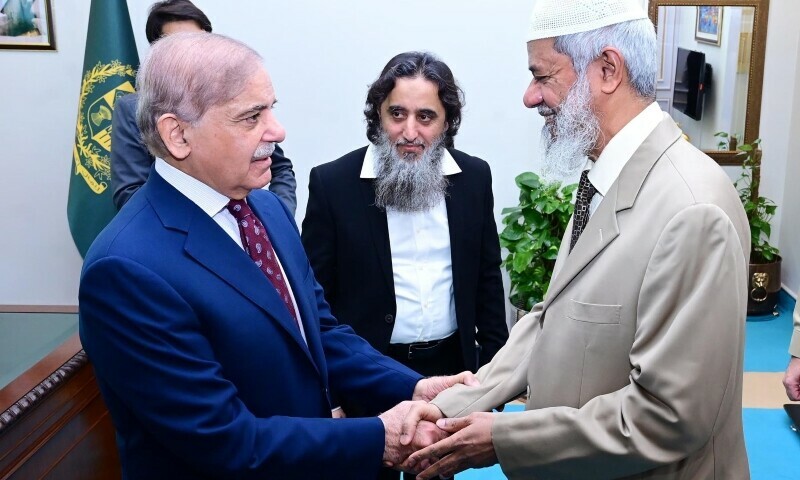The Prime Minister welcomed Dr. Naik, who is on a three-week tour of the country, expressed admiration for his work and said he had personally benefited from his lectures. He said the entire Muslim world is proud of Dr. Naik as he projects the true image of Islam to the world. The Prime Minister said it is “heartening that a large number of young people listened to his lectures.” Dr. Naik said Pakistan is the only country in the world founded on Islamic principles. “Islam is a religion which provides comprehensive guidance to the entire human race and embraces all aspects of life,” he said. The scholar reiterated his determination to spread the message of Islam across the world and said, “Success lies in following the teachings of Islam.” He recalled that he last visited Pakistan in 1991 and said he still has fond memories of that trip. Dr. Naik said he will also visit Karachi and Lahore as part of his speaking tour. “The Quran is the most positive book in the world and will be the future world constitution,” he said. A day earlier, Dr. Naik said Islamic education is very important for social development providing equal opportunities to learn, grow and prosper. Speaking at a lecture organised by Pakistan Sweet Homes, he emphasised the need to acquire religious and general knowledge to lead a fulfilling life. “The first word revealed to Prophet Muhammad (peace be upon him) was ‘reading’. This is a vital part of acquiring knowledge,” he said. Referring to verses from the Quran, he emphasised the importance of knowledge and stressed that Muslims are at the forefront of the world in terms of discovery and intellect. He also emphasised the need for unity within the Islamic Ummah and called on Muslim countries to set aside their differences and unite under the guidance of the Holy Quran. Dr. Naik reiterated that Islam is a complete code of life that advocates peace, tolerance and love. The event featured a special documentary on orphans and showed how more than 10,000 children in the organization’s homes receive vital support, including food, access to education, and important medical care and therapy.
